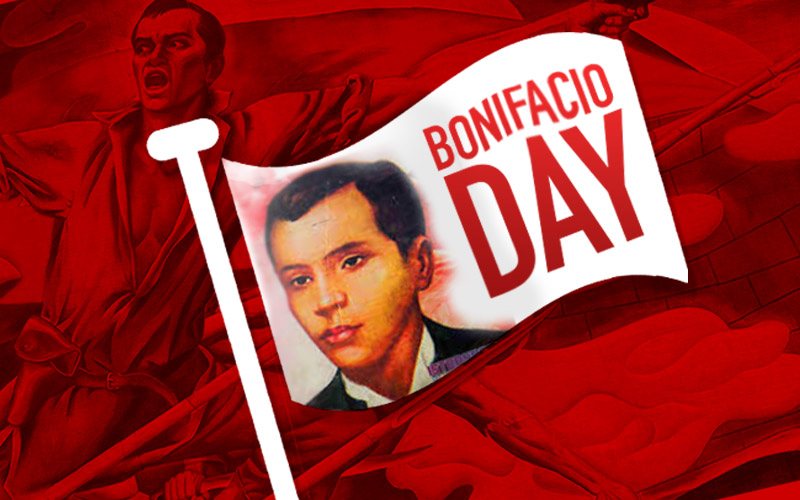November 30, 2016 will be celebrated in the Philippines as “Araw ng Kapanganakan ni Bonifacio” or “Bonifacio Day.” This was declared by the Malacañan as a national holiday, under Proclamation No. 1105, series of 2015.
Schools will have no classes and most offices will be closed. However, anyone who will work on the said date is still entitled to pay. Meanwhile, some people and institutions are expected to conduct activities in monuments dedicated to Bonifacio as a way of remembering his legacy.
While this holiday commemorates the birth of Andres Bonifacio it also celebrates his heroism as “the father of the Philippine Revolution.”
In 1892, Bonifacio founded the Kataas-taasang, Kagalang-galang na Katipunan ng mga Anak ng Bayan (KKK or Katipunan) and was the movement’s commenader-in-chief. This secret society grew into an armed movement against Spanish colonial rule. The Katipunan initiated attacks against the Spanish colonial leaders and inspired heroism among Filipinos during that time.
However, Katipunan’s leadership was fractured due to rival factions that vied for control and power. Eventually, Emilio Aguinaldo took control of the armed movement. It was also strengthened by a meeting, known as the Tejeros Convention, which made Aguinaldo as the president-elect of the country once the overthrow of the Spaniards was realized.
Bonifacio rejected the results saying that the voting was rigged. He then became a rebel leader within a revolutionary government and sparked a conflict between him and Aguinaldo. This led to his arrest by Aguinaldo, a few years later. He was put on trial and executed on May 10, 1897.
Yet, Andres Bonifacio is recognized as the first president of the Philippines, instead of Aguinaldo. It is because of the fact that Katipunan has established its own constitution purely run by Filipinos before the creation of the first government.
This year, Bonifacio celebrates his 153rd birthday. As we remember his life and tragic death, it will be worthwhile to see him as one of the country’s heroes who truly embodies the spirit of the struggle against oppression and tyranny. His bravery and love of country must serve as an inspiration to today’s generation.






